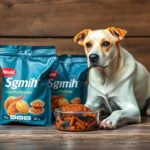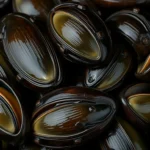
Introduction
Goldendoodles have quickly become one of the most sought-after dog breeds, prized for their friendly demeanor, intelligence, and hypoallergenic coats. As a mix between Golden Retrievers and Poodles, Goldendoodles offer a delightful combination of qualities that make them excellent family pets. However, just like any other breed, proper nutrition during the puppy stage is crucial for their overall health and development. The right food supports their growth, energy levels, and immune system, laying a solid foundation for a healthy adult life. In this guide, we will explore the best puppy foods for Goldendoodles to help you make informed choices for your furry friend.
Understanding Goldendoodle Nutrition Needs
Nutritional Requirements for Puppies
Puppies have unique nutritional needs that differ significantly from adults. A balanced diet for Goldendoodle puppies should consist of:
- High-quality protein: Essential for muscle development and growth.
- Healthy fats: Important for brain development and energy.
- Digestible carbohydrates: Provides energy and aids in digestive health.
- Vitamins and minerals: Supports immune function and overall health.
Goldendoodles, especially in their puppy stage, require a caloric intake that can vary based on their size and growth stage. Puppies typically need more calories than adult dogs. Standard Goldendoodles, for example, may need more energy than mini or toy varieties due to their larger size and higher activity levels.
Specific Needs for Goldendoodles
Goldendoodles come in various sizes—standard, mini, and toy—each with distinct dietary requirements. Standard Goldendoodles might need a diet higher in calories and protein compared to their mini and toy counterparts. Additionally, their activity levels can influence their dietary needs, with more active puppies requiring more energy-dense foods.
Key Ingredients to Look For in Puppy Food
High-Quality Protein Sources
Animal-based proteins are crucial for the growth and development of Goldendoodle puppies. Look for puppy foods that list real meat as the first ingredient. Recommended protein sources include:
- Chicken: A highly digestible source of protein that supports muscle development.
- Beef: Rich in iron and essential amino acids.
- Fish: Provides beneficial omega fatty acids for skin and coat health.
Healthy Fats
Fats play an essential role in brain development and provide energy. Look for foods that include omega-3 and omega-6 fatty acids. Recommended fat sources include:
- Fish oil: Excellent source of omega-3s, promoting healthy skin and coat.
- Chicken fat: A common and digestible fat source that adds flavor.
Digestible Carbohydrates
Carbohydrates provide energy and aid in digestion. While there is an ongoing debate over the benefits of grain-free versus grain-inclusive diets, many puppies thrive on a balanced mix. Recommended carbohydrate sources include:
- Sweet potatoes: A nutritious and easily digestible carbohydrate source.
- Brown rice: Offers fiber and essential nutrients.
Essential Vitamins and Minerals
Puppies need a balanced profile of vitamins and minerals to support their growth. Key vitamins and minerals include:
- Calcium and phosphorus: Essential for strong bones and teeth.
- Vitamins A, D, and E: Important for immune function and overall health.
Best Puppy Foods for Goldendoodles
Top Commercial Puppy Food Brands
Choosing the right puppy food can seem overwhelming, given the plethora of options available. Here are some of the best puppy foods for Goldendoodles that have proven to provide optimal nutrition:
Brand 1: Blue Buffalo Life Protection Puppy
- Ingredients: Deboned chicken, chicken meal, brown rice, barley, oats, carrots, blueberries.
- Pros: High-quality protein, no artificial preservatives, and contains LifeSource Bits, a blend of antioxidants.
- Cons: Higher price point compared to some other brands.
- Price Range: $50-$70 for a 30-lb bag.
Brand 2: Royal Canin Goldendoodle Puppy
- Ingredients: Chicken by-product meal, corn, wheat, rice, chicken fat, fish oil.
- Pros: Specifically formulated for Goldendoodles, promotes healthy skin and coat.
- Cons: Contains grains, which may not be suitable for all puppies.
- Price Range: $60-$80 for a 30-lb bag.
Brand 3: Hill’s Science Diet Puppy
- Ingredients: Chicken meal, corn gluten meal, brown rice, barley, chicken fat.
- Pros: Veterinary recommended, promotes healthy brain development.
- Cons: May contain fillers that some owners prefer to avoid.
- Price Range: $50-$70 for a 30-lb bag.
Brand 4: Wellness CORE Grain-Free Puppy
- Ingredients: Turkey, chicken meal, potatoes, peas, salmon oil.
- Pros: Grain-free with high protein content, excellent for active puppies.
- Cons: Grain-free diets may not be necessary for all puppies.
- Price Range: $55-$75 for a 26-lb bag.
Brand 5: Nutro Ultra Grain-Free Puppy
- Ingredients: Chicken, lamb meal, salmon meal, chickpeas, sweet potatoes.
- Pros: Multi-protein sources and grain-free, enriched with antioxidants.
- Cons: Some puppies may require a transition period for grain-free diets.
- Price Range: $50-$70 for a 30-lb bag.
Brand 6: Canidae PURE Limited Ingredient Puppy
- Ingredients: Fresh chicken, chicken meal, peas, sweet potatoes, sunflower oil.
- Pros: Limited ingredients, ideal for puppies with food sensitivities.
- Cons: May lack some essential nutrients found in more complex foods.
- Price Range: $50-$65 for a 24-lb bag.
Homemade Puppy Food Options
Preparing homemade puppy food can be an excellent alternative if you prefer knowing exactly what your puppy is eating. Here are some benefits and guidelines:
- Benefits: You can customize ingredients based on your puppy’s specific needs and preferences.
- Key Ingredients to Include: Lean proteins (chicken, turkey, beef), healthy fats (fish oil, olive oil), and carbohydrates (brown rice, oats).
- Key Ingredients to Avoid: Onions, garlic, chocolate, grapes, and any artificial additives.
Sample Recipe for Goldendoodle Puppies
Chicken and Rice Puppy Meal
- Ingredients:
- 2 cups cooked brown rice
- 1 cup shredded chicken (cooked)
- 1/2 cup carrots (cooked and chopped)
- 1/4 cup peas (cooked)
-
1 tablespoon fish oil
-
Instructions:
- Combine all ingredients in a bowl.
- Mix well and serve at room temperature.
- Store leftovers in the refrigerator for up to three days.
Grain-Free vs. Grain-Inclusive Diets
The debate over grain-free versus grain-inclusive diets continues among dog owners and veterinarians.
- Grain-Free Diets: Often marketed as healthier, but may not be necessary for all dogs. Some puppies may thrive on grain-inclusive diets, which can provide a balanced source of energy and nutrients.
- Grain-Inclusive Diets: Tend to be more affordable and may offer essential nutrients that contribute to overall health.
Ultimately, the best choice depends on your Goldendoodle’s individual health needs and dietary preferences.
Transitioning Your Goldendoodle to New Food
Gradual Transition Process
When introducing new food to your Goldendoodle, a gradual transition is key to preventing digestive upset. Follow these steps:
- Start slow: Mix 25% of the new food with 75% of the current food for the first few days.
- Increase gradually: Transition to 50% new food and 50% old food for several days.
- Final stage: Move to 75% new food and 25% old food before fully switching to the new food.
This process should take about a week to ten days, allowing your puppy to adjust comfortably.
Monitoring Your Puppy’s Response
Keep an eye on your puppy’s response to the new food. Signs of potential food allergies or intolerances include:
- Digestive upset (vomiting, diarrhea)
- Skin irritations or excessive scratching
- Changes in energy levels or behavior
If you notice any adverse reactions, consult your veterinarian for guidance.
Common Nutritional Myths and Misconceptions
Grain-Free Diets Are Always Better
While grain-free diets may benefit some dogs, it’s essential to consult with your veterinarian to determine the best diet for your Goldendoodle. Grain-free diets are not inherently superior and can sometimes lead to nutritional deficiencies if not balanced correctly.
All Natural Equals Healthy
The term “natural” can be misleading in pet food marketing. Just because a food is labeled as natural does not necessarily mean it’s nutritionally complete or healthy. Always read ingredient labels and do your research.
Puppy Food vs. Adult Food
Puppies require specialized nutrition that is significantly different from adult dog food. Puppy foods are formulated with higher protein levels and added nutrients to support growth and development, making it essential to feed your Goldendoodle puppy appropriate puppy food until they reach maturity.
Conclusion
Choosing the best puppy foods for Goldendoodles is a critical decision that can significantly impact your puppy’s health and well-being. By understanding their unique nutritional needs, considering high-quality ingredients, and selecting the right brands, you can ensure that your Goldendoodle has the best start in life. Always consult with your veterinarian for personalized dietary advice, as they can guide you in making the best choices for your specific puppy’s needs.
FAQs About Goldendoodle Puppy Nutrition
-
What should I look for in puppy food?
Look for high-quality protein sources, healthy fats, digestible carbohydrates, and a balanced vitamin/mineral profile. -
Can I feed my Goldendoodle homemade food?
Yes, homemade food can be a great option, but ensure it meets all nutritional needs and avoids harmful ingredients. -
How often should I feed my Goldendoodle puppy?
Puppies typically require three to four meals a day, gradually transitioning to two meals as they grow. -
Is grain-free food necessary for Goldendoodles?
Not necessarily; consult with your veterinarian to determine the best diet based on your puppy’s health and needs. -
When should I switch from puppy food to adult food?
Most Goldendoodles can transition to adult food around 12 months of age, but consult your veterinarian for personalized advice.









